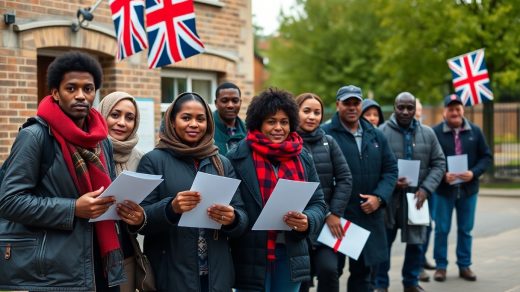It’s important for you to understand the legal protections available for grandparents in the UK. As a grandparent, you may feel concerned about your relationship with your grandchildren and how it is affected by family dynamics. This blog post will provide you with important information regarding your rights, the legal framework surrounding them, and the steps you can take to ensure your relationship with your grandchildren is maintained, regardless of the circumstances. By becoming informed, you can better navigate the complexities of family law and the rights you hold as a grandparent.
Key Takeaways:
- Legal Status: Grandparents do not have automatic rights to see their grandchildren in the UK; they must seek permission through the courts if access is denied.
- Application for Access: Grandparents can apply for a court order to gain contact or resident rights, but they need to demonstrate a significant relationship with the child.
- Consideration Factors: Courts assess the child’s best interests, existing family dynamics, and any potential risks to the child when determining access rights.
- Mediation Preference: Before going to court, grandparents are often encouraged to try mediation to resolve disputes regarding contact with grandchildren amicably.
- Legal Advice: Seeking professional legal advice is beneficial for grandparents to understand their options and navigate the complexities of family law effectively.
Understanding Grandparents’ Rights in the UK
While it can be difficult for grandparents to navigate the complexities surrounding their rights, it’s important to understand the legal framework that governs access to grandchildren in the UK. For more information, visit Grandparents Rights | Access your Grandchildren Today.
Legal Framework
By understanding the legal framework regarding grandparents’ rights in the UK, you can determine your options for maintaining a relationship with your grandchildren. The Children Act 1989 provides the primary legislation, focusing on the welfare of the child as the paramount concern, enabling you to seek contact or residence orders in certain circumstances.
Types of Rights
Even if your relationship with your grandchildren is strained, there are several types of rights you may seek. Below is a summary of the types of rights available to you:
| Type of Right | Description |
|---|---|
| Contact Order | A court order to ensure you can visit your grandchildren. |
| Residence Order | An order determining where your grandchildren will live. |
| Special Guardianship Order | An order granting you permanent care and responsibility for your grandchildren. |
| Child Arrangements Order | A broader order for parenting arrangements, including living and contact arrangements. |
| Family Mediation | A process to resolve disputes amicably regarding your rights. |
After exploring the available rights, it’s crucial to approach each situation with clarity and patience. You may want to consult legal professionals to best advocate for your interests.
Your understanding of the types of rights can significantly impact your approach to maintaining familial bonds. Even within their limitations, these rights can be vital in establishing a continuing relationship with your grandchildren.
- Contact Orders are vital for maintaining visitation.
- Residence Orders determine where your grandchildren live.
- Special Guardianship Orders can allow you to take on a more parental role.
- Child Arrangements Orders can help you plan for the future.
- Mediation can often help resolve issues amicably.
After analyzing your options, you can take decisive steps towards securing your relationship with your grandchildren

The Role of Family Courts
Some family courts play a significant role in upholding grandparents’ rights in the UK. When disputes arise regarding child custody or visitation, these courts assess cases based on the best interests of the children involved, ensuring that relationships with grandparents can be maintained when appropriate. Understanding the court’s function can guide you in navigating the legal landscape effectively.
Application Process
The application process to seek a court order regarding grandparents’ rights typically begins by submitting a formal application to the family court. You must provide detailed information about your relationship with the grandchild and the circumstances prompting your application. Gathering relevant documentation and evidence can support your case and help illustrate your importance in the child’s life.
Mediation and Resolution
To resolve disputes regarding grandparents’ rights, mediation is often recommended before escalating the matter to a family court. Mediation allows you and the child’s parents to discuss your concerns and negotiate terms collaboratively. This process can often lead to mutually agreeable solutions that prioritize the child’s welfare while maintaining familial bonds.
But you should be aware that mediation requires both parties to be open to compromise. It focuses on constructive communication and finding common ground, which can be more beneficial than court proceedings. If mediation is successful, it can save time, reduce emotional strain, and foster a healthier relationship among family members moving forward.
Grandparents’ Rights in Custody Cases
Once again, it is vital to recognize that grandparents do not automatically have rights when it comes to custody cases in the UK. However, if you believe that maintaining a relationship with your grandchildren is important, you can apply for legal permission to seek contact. Courts will consider your application, focusing on the child’s best interests, though the process can often be complex and emotional, requiring legal advice and support.
Involvement During Divorce
Against the backdrop of a divorce, your role as a grandparent can be significantly affected. While your child may be navigating their own challenges, staying connected with your grandchildren during this time can provide stability and comfort for them. Open communication with the parents about your involvement can help reinforce your position in their lives, ensuring their emotional well-being remains a priority.
Visitation Rights
At times, you may find it necessary to seek formal visitation rights to ensure consistent contact with your grandchildren. The law in the UK recognizes the importance of the grandparent-grandchild relationship, allowing you to apply for a court order that can provide specific terms for visitation. However, gaining these rights does require demonstrating that your involvement is in the child’s best interest.
Grandparents can play a significant role in their grandchildren’s lives, providing love, support, and stability. If you wish to pursue visitation rights, you will need to apply to the court, typically through a Child Arrangements Order. Consideration will be given to how your presence positively influences the child’s well-being, as courts strive to maintain family connections wherever possible. Engaging a solicitor who specializes in family law can benefit you in navigating this process and advocating effectively for your rights as a grandparent.
Legal Protections for Grandparents
Unlike many other family members, grandparents may have specific legal protections in the UK that can facilitate their involvement in their grandchildren’s lives. These rights enable you to seek contact or even residence arrangements when circumstances require it, ensuring that your relationship with your grandchildren is maintained and acknowledged by law.
The Children Act 1989
Among the significant legislative frameworks that safeguard grandparents’ rights is The Children Act 1989. This act emphasizes the importance of maintaining relationships with extended family members, including grandparents, and provides a structure for you to pursue contact orders if necessary.
The Importance of Legal Standing
With legal standing, you can actively participate in decisions regarding your grandchildren’s welfare, allowing you to advocate for their best interests. This recognition can make a significant difference in fostering and preserving family ties.
This legal standing is crucial because it empowers you to approach the courts for parental responsibilities or contact arrangements if you are struggling to maintain a relationship with your grandchildren. By establishing your rights, you position yourself as a recognized figure in your grandchildren’s lives, enhancing your ability to support and nurture them even through challenging circumstances.
Case Studies and Precedents
Notably, various case studies and precedents highlight the legal landscape surrounding grandparents’ rights in the UK. Here are some significant examples:
- Case 1: *Re C (Children) [2013]* – The court granted contact rights to grandparents, prioritising the children’s best interests.
- Case 2: *In the matter of C [2009]* – The judge emphasised the importance of maintaining family connections, allowing grandparents visitation.
- Case 3: *S v H [2015]* – The court ruled in favour of grandparents’ involvement when parental relationships were strained.
- Case 4: *Re P (Children) [2017]* – This case underscored the necessity of considering grandparents’ applications for residence in certain circumstances.
Significant Cases
An examination of significant cases demonstrates the evolving nature of grandparents’ rights. The outcomes of these cases reveal how courts interpret the need for maintaining familial bonds, often in the context of the child’s welfare and emotional well-being.
Impact on Grandparents’ Rights
Impact from recent rulings has shaped the expectations and realities for grandparents seeking legal recognition of their rights. Courts often focus on the principle of child welfare, leading to various outcomes for grandparents.
A greater understanding of these impacts can guide you as you navigate the challenges associated with grandparenting. Positive case outcomes help establish a precedent that enhances your rights, allowing for more significant involvement in your grandchildren’s lives, especially during familial disputes or breakdowns. Understanding these nuances can empower you to advocate effectively for your rightful role in your grandchildren’s upbringing.
Resources for Grandparents
All grandparents seeking guidance can find useful information online, including discussions on platforms such as Is there such thing as grandparents rights in the UK?. These resources provide insight into your rights and how to navigate the legal landscape surrounding grandparental access and support.
Legal Aid and Support
Any grandparent in need of legal assistance may qualify for legal aid, which can help cover the cost of representation in family court. You can check your eligibility through the UK government’s official website or consult with a legal professional who specializes in family law to ensure you receive the necessary support.
Organizations and Advocacy Groups
Grandparents can turn to several organizations and advocacy groups that focus on grandparent rights and support. These groups offer resources, guidance, and networking opportunities with other grandparents facing similar challenges. Engaging with these organizations can also help you stay informed about any legal changes that may impact your rights.
Considering the emotional and legal complexities surrounding grandparental rights, connecting with advocacy groups is a proactive step. Organizations like Grandparents Plus and The Grandparents Association provide valuable resources, including legal advice and community support. They empower you to advocate for your rights and enhance your role in your grandchildren’s lives, creating a strong network of support and information.

Final Words
Following this, understanding grandparents’ rights in the UK is vital for you if you’re seeking to maintain a relationship with your grandchildren. Legal protections exist, allowing you to apply for contact or residence orders when necessary. It’s important to be aware of the legal process, as well as the emotional aspects, to make informed decisions for your family. Your role as a grandparent can be significant, and navigating these rights effectively can help ensure your bond with your grandchildren remains strong.
Q: What legal rights do grandparents have regarding access to their grandchildren in the UK?
A: In the UK, grandparents do not automatically have legal rights to see their grandchildren, but they can apply for ‘Child Arrangement Orders’ under the Children Act 1989. This legal mechanism allows grandparents to seek permission from the court for contact with their grandchildren. If granted, this order can establish specific terms regarding visitation, ensuring that grandparents can maintain a relationship with their grandchildren even if family dynamics change. It is advisable for grandparents to seek legal advice and explore whether mediation is an option before proceeding to court.
Q: What steps can grandparents take if they are denied access to their grandchildren?
A: If grandparents are being denied access to their grandchildren, the first step is to try to resolve the issue amicably through communication with the parents. If this does not lead to a satisfactory resolution, grandparents can consider mediation, which is a less adversarial process aimed at finding a mutually agreeable solution. Should mediation fail, grandparents may need to seek legal recourse by applying for a Child Arrangement Order in court. It’s important that they document all communication attempts and gather any relevant evidence to support their case when seeking legal intervention.
Q: How does the court determine what is in the best interests of the child when considering grandparents’ rights?
A: When assessing a case involving grandparents’ rights, the court prioritizes the welfare of the child above all else. The courts consider a variety of factors, including the child’s emotional needs, the nature of the relationship between the child and the grandparents, and any wishes expressed by the child if they are deemed mature enough to do so. Additionally, the court evaluates how contact with the grandparents could support the child’s well-being and stability. It is critical for grandparents to demonstrate how their involvement can positively impact the child’s life to strengthen their case.




Recent Comments